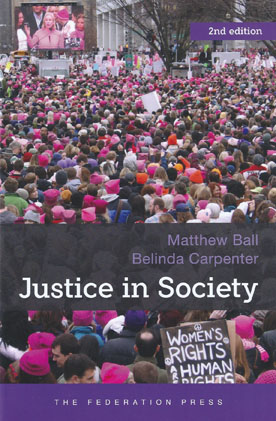
In a society where politics has become increasingly polarised, interrogating our understanding of justice is critical. Australia has always made claims to being a just and fair society so why, then, do certain groups of people continue to experience the worst forms of injustice in our society? Why is it that our criminal justice system is host to the most disadvantaged and disenfranchised in our community? And why do these injustices continue, despite numerous attempts by researchers and activists to address them?
By exploring the ways in which we think about justice, Justice in Society considers these questions. The authors examine how the contributions of political philosophy and sociology have come to dominate discussion on issues ranging from asylum seeking to transphobic discrimination. By considering the common assumptions about justice and injustice that underpin these discussions, the book seeks to engage, challenge, and offer new possibilities for achieving justice in society.
Fully updated and expanded, the second edition features two new chapters looking at the lives of transgender people and disabled people. It continues its coverage of contemporary social issues such as homelessness, mental illness, and Indigenous policing. Each issue is placed in its historical, social, and cultural context, and linked to local, national, and global debates.